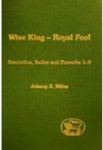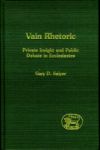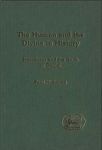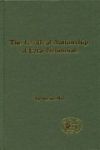Library of Hebrew Bible/OT Studies: JSOTS on Ketuvim (7 vols.)
Digital Logos Edition
Overview
The Library of Hebrew Bible/OT Studies: JSOTS on Ketuvim collection offers the scholar explorations of issues pertaining to the “Writings” books of the Old Testament. Written with the academic in mind, the seven volumes capture a variety of fascinating thoughts on these foundational books. Topics include Psalms in ancient near-eastern settings, direct discourse in the Psalms, Proverbs 1-9 as satire, the deterministic tone of Ecclesiastes, rhetoric of Ecclesiastes, Herodotean concepts in Daniel, and the authorship of Ezra-Nehemiah.
The Journal for the Study of the Old Testament Supplement (renamed the Library of Hebrew Bible/Old Testament Studies in 2005) is a premier book series that offers cutting-edge work for a readership of scholars, teachers in the field of Hebrew Bible/Old Testament studies, postgraduate students and advanced undergraduates. All the many and diverse aspects of Old Testament study are represented and promoted in the series, including innovative work from historical perspectives, studies using social-scientific and literary theory, and developing theological, cultural and contextual approaches.
The series was launched by Sheffield Academic Press in 1976, and is published regularly by T & T Clark International as The Library of Hebrew Bible/Old Testament Studies. This world-class religious academic publishing program is both interdisciplinary and international in scope, incorporating Sheffield Academic Press, T & T Clark and Trinity Press International.
This title is included in the following collections
You can save when you purchase this product as part of a collection.
Logos 8 Messianic Jewish Diamo...
$2,999.99$2,999.99Logos 9 Messianic Jewish Diamo...
$2,999.99$2,999.992025 Messianic Jewish Portfoli...
$4,749.99$3,562.49Logos 8 Anglican Portfolio Leg...
$4,749.99$4,749.99
- $4,749.99
- $4,999.99
- $7,749.99
- $11,399.99
- $23,999.99$17,999.99
- $21,749.99
- $24,999.99

- Topics include Psalms, Proverbs, Ecclesiastes, Daniel, Ezra, and Nehemiah
- Ideal for students and teachers
- Title: Library of Hebrew Bible/OT Studies: JSOTS on Ketuvim (7 vols.)
- Series: Journal for the Study of the Old Testament Supplement series (JSOTS)
- Volumes: 7
- Pages: 1,666

This book offers unique insights into the Psalms and sketches a variety of interpretive possibilities. The exposition of Psalm texts against the background of their different historical and/or cultic settings in the ancient Near East sets a firm basis for their reapplication in the liturgy today. In the history of interpretation the Psalms have also proven themselves to be natural texts for liturgical use. This scholarly effort thus portrays in various ways the importance of the Psalms for their reviving interpretation and application in the liturgy.
Contributors include: Marcel Bernhard, Georg P. Braulik, Brian Doyle, Alphonso Groenewald, Dirk J. Human, Jorg Jeremias, Louis C. Joner, Jurie H. le Roux, Eckhart Otto, Nick A. Schuman, Stephanus D. Snyman, Hans-Ulrich Steymans, Pieter M. Venler and Cas J.A. Vos.
D.J. Human is Head of Biblical and Religious Studies at the University of Pretoria.
Cas J.A. Vos is the Dean of the Faculty of Theology at the University of Pretoria. He has published numerous books and articles and won the Andrew Murray Prize for Theology (1999). He is the President of the Societas Homiletica.

In recent years, Old Testament scholars have come to see that the aesthetic and rhetorical richness of Hebrew poetry goes far beyond simple synonymous, antithetic, and synthetic parallelism. One aspect that has yet to receive sustained treatment is the poetic device known as direct discourse or quotation—the direct citation of a person’s speech.
Rolf A. Jacobson remedies this lack and makes a significant contribution to Old Testament studies by offering a sustained investigation into the function of direct discourse in the Hebrew Psalter. This leads to a greater understanding both of direct discourse and also of those psalms in which this poetic device occurs.
Rolf A. Jacobson is Assistant Professor of Old Testament at the Luther Seminary, St. Paul, Minnesota

This study focuses on a reading of Proverbs 1–9 as satire and argues that it alludes to two points of critique against Solomon: his political policy of socio-economic injustice and his numerous sexual (in)discretions. That Solomon abandoned his divinely proscribed duty only evinces his lack of “fear of Yahweh.”
First, Solomon demonstrates his lack of discernment by an inability to rule with righteousness, justice and equity because of administrative policies that bled the innocent dry of their resources for his own self-aggrandizement. Second, Solomon’s sexual behavior reflects his need of Wisdom as the personification of eroticism.
The absence of the “fear of Yahweh” in Solomon prompts the poet’s reproof in Proverbs 1–9 that he should resume his proper role of Torah meditation. How the “son” responds to the decision posed to him remains decidedly open-ended, since satire generally offers no denouement to its plot. Nevertheless, the signs of this satiric poetry intimate the wise king as a royal fool.
Johnny Miles received his doctorate in Religion with specialization in Old Testament/Hebrew Bible studies from Baylor University in May 2001. He is teaching at Texas Christian University as an Adjunct Instructor.

Is the author of Ecclesiastes a determinist? Many readers, from the Targumist and Ibn Ezra up to the present day, have thought so. But there has been no systematic investigation of Qoheleth's determinism, its nature and extent, its relationship to free will and its philosophical background.
In separate chapters, Rudman discusses key terms and texts that express a deterministic worldview, then explores the sources for Qoheleth's thought. He concludes that the author was a sage writing in the third quarter of the third century BCE, who was profoundly influenced by Stoic ideas.
Dominic Rudman is Leverhulme Special Research Fellow, Department of Theology, University of Exeter.

The Book of Ecclesiastes, like many ancient and modern first-person discourses, generates ambivalent responses in its readers. The book's rhetorical strategy produces both acceptance of, and suspicion towards, the major positions argued by the author.
“Vain rhetoric” aptly describes the persuasive and dissuasive properties of the narrator's peculiar characterization. It also describes how the Book of Ecclesiastes, with its abundant use of rhetorical questions, constant gapping techniques, and other strategies from the arsenal of ambiguity, is a stunning testimony to the power of the various strategies of indirection to communicate to the reader something of his or her own rhetorical liabilities and limitations, as well as those of the religious community in general.
Gary Salyer is Adjunct Professor of Biblical Interpretation, Fuller Theological Seminary of Northern California, Menlo Park, California.

The Human and the Divine in History investigates the possibility that the author of Daniel knew and drew upon the Histories of Herodotus. Daniel uses and develops Herodotean concepts such as the succession of world empires, dynastic dreams, and the focus on both human and divine causation in explaining historical events. A comparative reading of these two texts illuminates Daniel’s theology of history, showing it to be neither as exclusively eschatological nor as sectarian as is often supposed. Rather, it is specifically the end of exile—understood as foreign domination—that Daniel envisions for the entire Jewish people.
Paul Niskanen is Assistant Professor of Old Testament at the University of St. Thomas, St. Paul, Minnesota.

The study of Ezra-Nehemiah has been revolutionized in recent years by a growing rejection of the long-established belief that it was composed as part of the Chronicler’s work. That shift in scholarly paradigms has re-opened many questions of origin and purpose, and this thesis attempts to establish an answer to the most important of these: the question of authorship.
Here, Kyungjin Min argues that Ezra-Nehemiah most likely originated in a Levitical group that received Persian backing during the late-fifth century BCE and that valued the ideologies of decentralization of power, unity and cooperation among social groups, and dissatisfaction with the religious status quo.
Kyungjin Min received a Ph.D. from the University of Durham and is Lecturer in Theology at Busan Presbyterian University, Gimhae, South Korea.